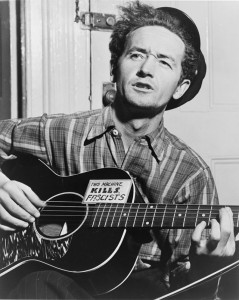Court of Appeals Upholds Dismissal of Sing-Along Citation
 Today the Wisconsin Court of Appeals upheld the dismissal of a citation issued to a “solidarity singer,” one of the participants in the ongoing State Capitol Sing-a-Long in which the participants sing songs protesting Governor Walker’s policies. The Court of Appeals upheld the dismissal of the citation by the Circuit Court, agreeing with the lower court that the permitting policy instituted by the Walker Administration unconstitutionally infringes on the First Amendment rights of individuals and small groups to engage in protests in the Capitol Building. The decision of the Court of Appeals can be read in its entirety here. Today’s ruling is unsurprising. I argued that an earlier version of the permitting policy was unconstitutional a little over three years ago, in a post on the Faculty Blog that can be read here. Reading the flimsy legal arguments put forth by the State in defense of the policy before the Court of Appeals (and I do not use the word “flimsy” lightly), I remain baffled as to why the Walker Administration would spend so much time and money in pursuing a permitting policy that so obviously conflicts with established First Amendment precedent. While the Walker Administration typically rushes to appeal contrary judicial rulings to the Wisconsin Supreme Court, confident of receiving a sympathetic hearing from that body, I suggest that they think long and hard before appealing today’s ruling.
Today the Wisconsin Court of Appeals upheld the dismissal of a citation issued to a “solidarity singer,” one of the participants in the ongoing State Capitol Sing-a-Long in which the participants sing songs protesting Governor Walker’s policies. The Court of Appeals upheld the dismissal of the citation by the Circuit Court, agreeing with the lower court that the permitting policy instituted by the Walker Administration unconstitutionally infringes on the First Amendment rights of individuals and small groups to engage in protests in the Capitol Building. The decision of the Court of Appeals can be read in its entirety here. Today’s ruling is unsurprising. I argued that an earlier version of the permitting policy was unconstitutional a little over three years ago, in a post on the Faculty Blog that can be read here. Reading the flimsy legal arguments put forth by the State in defense of the policy before the Court of Appeals (and I do not use the word “flimsy” lightly), I remain baffled as to why the Walker Administration would spend so much time and money in pursuing a permitting policy that so obviously conflicts with established First Amendment precedent. While the Walker Administration typically rushes to appeal contrary judicial rulings to the Wisconsin Supreme Court, confident of receiving a sympathetic hearing from that body, I suggest that they think long and hard before appealing today’s ruling.

